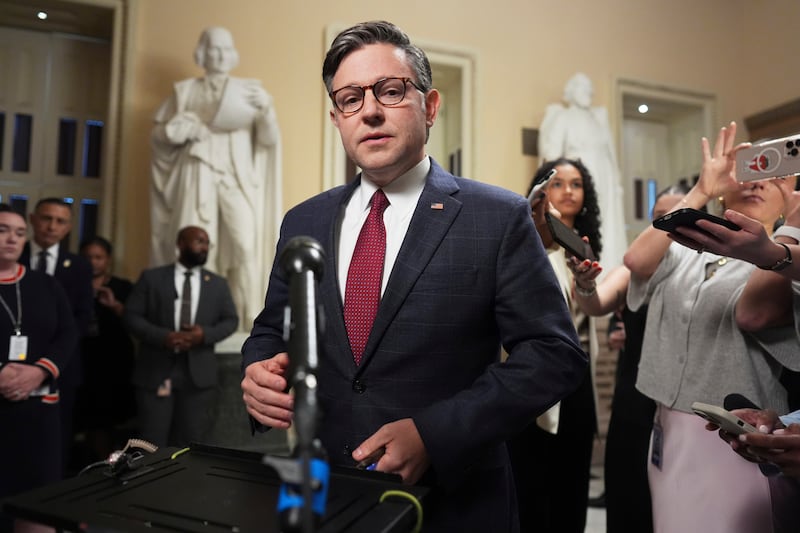WASHINGTON — Lawmakers are reconsidering their personal safety measures in the aftermath of Charlie Kirk’s death after the conservative activist was shot at a public event at Utah Valley University on Wednesday.
Rep. Alexandria Ocasio-Cortez, D-N.Y., postponed a scheduled appearance in Raleigh, North Carolina, for this weekend, citing Kirk’s death as the reason. The New York Democrat said she canceled the event out of respect for his death but also out of concern for safety.
“Prior to what happened, we had decided on maintaining an indoor event, because the nature of escalation has been gradually increasing for quite some time,” Ocasio-Cortez told reporters on Thursday. “And after yesterday’s event, we’ve postponed.”
Rep. Nancy Mace, R-S.C., similarly told reporters she would swear off outdoor events and that she would cancel some upcoming events at universities.
Rep. Ralph Norman, R-S.C., said the incident has forced him to rethink how to engage with his constituents. Although he didn’t rule out holding outdoor events, Norman said it has forced him to be “more aware.”
The reactions to Kirk’s death have reached all corners of Capitol Hill, with several Republicans quickly trying to find a motive even before the FBI has identified a suspect.
Many lawmakers on both the left and right have pointed to the increase in volatile political rhetoric in recent months, arguing it must be toned down to avoid future incidents. That kind of rhetoric has been ongoing for months, lawmakers said, and has already forced them to change how they operate.
Rep. Thomas Massie, R-Ky., said he has already upped his security in recent months, especially as he’s been at the center of President Donald Trump’s and other GOP leaders’ frustrations.
“There is a lot of rhetoric. The president himself engages in it,” Massie said. “It’s amusing sometimes, and it doesn’t offend me that he’s over the top with the rhetoric, but some people take it literally, and he should probably tone that down himself.”
“Anytime you’re in the news, you just become a bigger target,” he added.
Sen. Chris Murphy, D-Conn., who has become a prominent Democratic voice online, said he’s similarly increased his security, especially after attacks on politicians in recent months.
“This is not the first really serious political attack,” Murphy said. “We’ve all been changing our security disposition over the course of this year.”
House Speaker Mike Johnson, R-La., said top congressional leaders would conduct a “very thorough review” for member safety, as well as for their families back home.

Johnson said there were some restrictions on how they can increase safety, noting it would likely cost billions of dollars to provide “complete, full security detail” for all 435 members of the House. It would also require the hiring of about 5,000 Capitol Police officers, he said.
“It’s not a possibility,” he said. “So we’re looking at all angles.”
Johnson pointed to recent changes in member security, including a pilot program introduced earlier this year giving lawmakers a one-time payment of $20,000 to install security measures at their personal homes, an increase from the current allotment of $10,000. Lawmakers will also receive a monthly payment of $5,000 a month for personal security through the end of the fiscal year.
Lawmakers also received safety briefings in July after the killings of two Minnesota lawmakers. It’s not yet clear if lawmakers will receive another briefing after Kirk’s death.
In the meantime, Johnson is urging all lawmakers to “turn down the temperature.”
“The problem, ultimately, at the end of the day, is the human heart,” he said.

